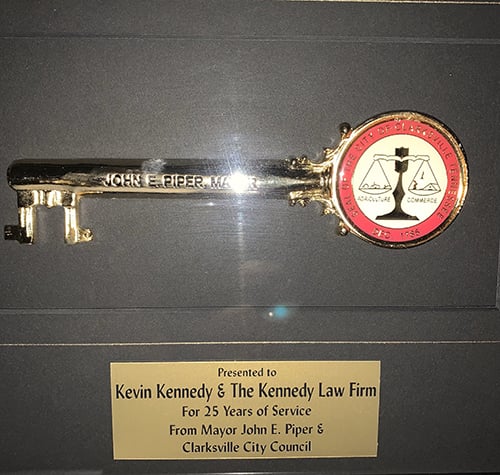What Is Chapter 13 Bankruptcy?
If you are struggling with debt, but the thought of liquidating your assets makes you shy away from bankruptcy, Chapter 13 may offer the answer you need. Many people in Tennessee do not realize that there are multiple types of bankruptcy available to accomplish a variety of goals. Chapter 13 bankruptcy can allow you to resolve debt without being required to sell your property, making it ideal for people in Clarksville struggling with debt but want to stay in their homes.
As a comprehensive debt relief agency, we at the Kennedy Law Firm, PLLC strive to offer struggling individuals and families the full range of debt relief options, including all major forms of bankruptcy available under federal law.
What makes Chapter 13 different?
The main concern most people have when contemplating bankruptcy is being required to sell their assets. While Chapter 7 does allow fairly generous property exemptions, Chapter 13 can offer asset protection for all your property, including your home. A Chapter 13 bankruptcy petitioner is not required to sell any property. Instead, he or she must agree to a three- to five-year payment plan, paying disposable income to a U.S. trustee for distribution to creditors.
Once a petitioner successfully completes the payment plan, the court discharges any remaining dischargeable debt. A Chapter 13 bankruptcy filing stays any collection actions, including home foreclosure. Although secured debt is still not dischargeable, it may be considered as part of the repayment plan. Our attorneys at the Kennedy Law Firm, PLLC can better help you understand how you can use Chapter 13 bankruptcy to save your home.
Qualifying for Chapter 13
Chapter 13 has perhaps the strictest qualification requirements of all the more common types of bankruptcy. To begin the process of filing for bankruptcy under this chapter, a petitioner must meet four basic requirements:
- A Chapter 13 petitioner must be an individual. The person can be a self-employed individual operating an unincorporated business, such as a sole proprietorship, but Chapter 13 is not available to partnerships, corporations and other business organizations.
- A Chapter 13 petitioner must receive regular monthly income that would make a repayment plan possible.
- A Chapter 13 bankruptcy petitioner must have debt under a statutorily established amount. Currently, these limits are $383,175 of unsecured debt and $1,149,525 of secured debt.
- A petitioner under Chapter 13 or any other type of personal bankruptcy must have undergone U.S. trustee-approved consumer credit counseling no more than 180 days prior to filing a petition.
In addition to meeting these initial requirements, Chapter 13 petitioners must be able to submit and gain approval of a repayment plan. Typically, plans must provide creditors with at least as much of a return as they would receive under a Chapter 7 proceeding. If a petitioner cannot gain court approval of the plan or fails to make the required payments, the case may be converted to Chapter 7 or dismissed entirely.
Contact our firm to learn what Chapter 13 has to offer you
At the Kennedy Law Firm, PLLC, our attorneys can help you use the Chapter 13 bankruptcy process to resolve your debt without being forced to sell off your home and other assets. If you live in Montgomery, Davidson, Stewart, Cheatham, Houston, Dickson, Humphreys or Henry county in Tennessee and are currently struggling with debt, call us today at 931-444-5620 or contact us online to schedule a free case evaluation at one of our three Clarksville locations.
We are a debt relief agency. We help people file for bankruptcy relief under the Bankruptcy Code.


